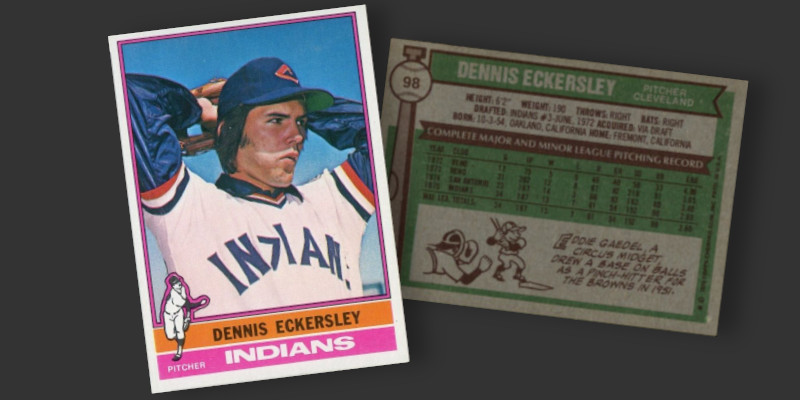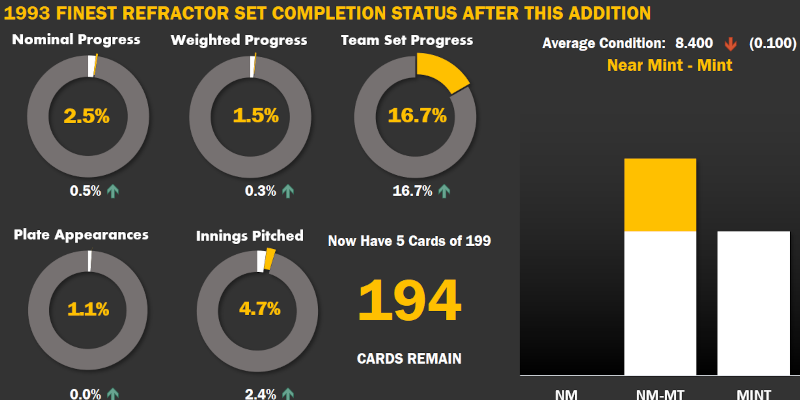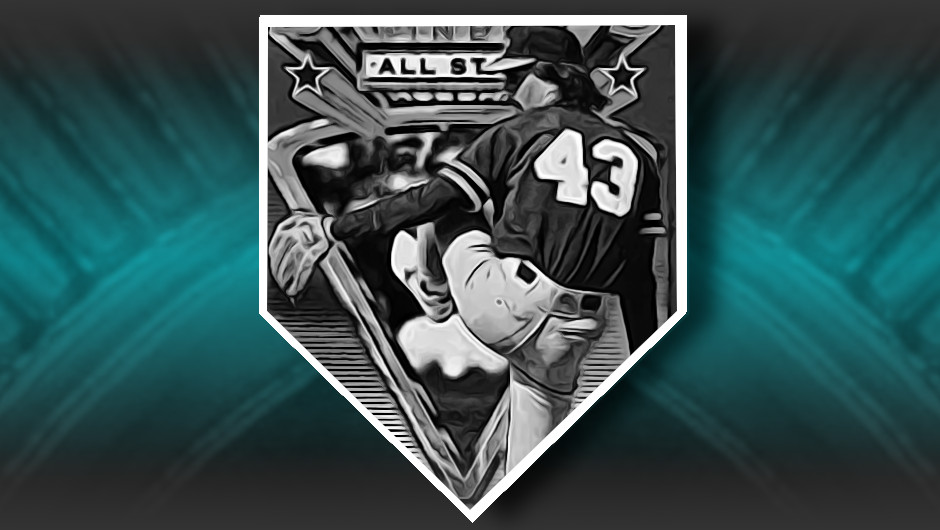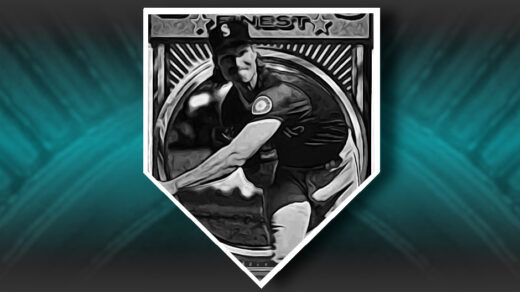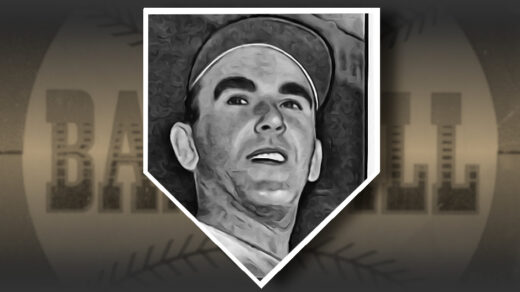Yep. MLB voters gave the 1992 American League MVP award to a relief pitcher, one who coined the term “walk-off” to describe homeruns he had personally given up.
Dennis Eckersley hadn’t always been a reliever. Best known for 9 seasons pitching in Oakland, in terms of innings pitched he logged more time inside three seasons as the ace of the Cleveland Indians rotation. Eckersley had started out as a hard-throwing fireballer who would celebrate strikeouts with swagger that could only be rivaled by future teammate Rickey Henderson. A no hitter in 1977 only further emboldened the pitcher.
Personal issues (that haircut loved to party) and building shoulder problems led to a decline in effectiveness in the mid-1980s. A trip to rehab and getting sober was followed by a change of scenery. He soon found himself looking for a permanent spot in the Oakland rotation. The team, however, didn’t have an opening and figured he could be slotted in to replace whichever starter developed arm trouble first as the 1987 season began. The first injury ended up being Jay Howell, Oakland’s closer. Eckersley was put into games and suddenly found the absence of needing to pitch so many innings kept his arm in good shape. His performance took off and the AL started noticing.
What set his pitching apart from so many was pinpoint accuracy. He walked only 17 batters in his first year with Oakland, 11 the next year, and an absurdly low 3 when he took the team to a World Series championship in 1989. From mid-1989 into early 1990 he set a record by going 41 games without walking a single batter. 1990 was also the year in which he recorded more saves than total baserunners.
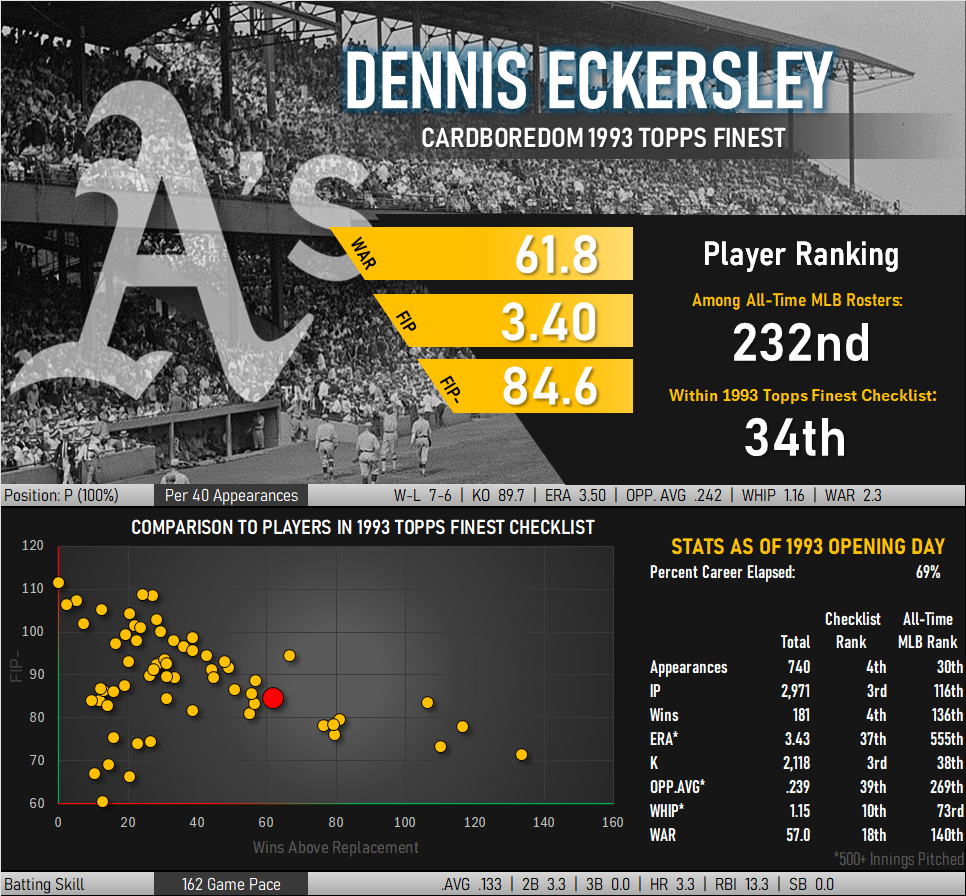
The pitch control and placement accuracy are something that I find central to Eckersley’s performance. What is even more amazing is that he didn’t use it for revenge when he had the chance.
Cleveland was the starting place for Eckersley’s career, but the team took the seemingly bizarre step of trading away its best pitcher just before breaking up Spring Training in 1978. The underlying issue was tension between Eckersley and his former roommate, 1st round draft pick/outfielder Rick Manning. Manning and Eckersley’s first wife had just run off together and Cleveland thought sending Eckersley to Boston would keep what little peace was left on the team.
The potential problem is that the two teams were often opponents. Manning and Eckersley squared off against each other 52 times in the course of the careers. Each of these was an opportunity for the pitcher to “accidentally” lose his grip and drill the batter with a fastball. Eckersley didn’t issue many walks in his career, but he did plunk his fair share of batters. In the end Eckersley never hit Manning despite 52 opportunities, one of which saw him issue an intentional walk when a fastball to the back would have accomplished the same outcome.
The Refractor: My First Hall of Famer
Dennis Eckersley is the fifth card in my quest to complete the ’93 Finest Refractor set. It’s my first encounter with the All-Star subset featuring a different background and a few color differences on the back. While I have more recently come to appreciate Eckersley, the purchase at the time was driven by the impulse to obtain the lowest price “good” player I could find. Eckersley’s cards have never really commanded much of a premium in the hobby, largely because he was a reliever and his stats snuck up on collectors.
This particular example was purchased from an eBay seller well-known to collectors of this set. The seller, whose username brings to mind a winter mobility dealership, often has most of the set in their available inventory. Pricing is almost always at a premium (well above normal market levels of these cards), though I can report condition, shipping, and customer service are all great. With hindsight I recommend being patient for most cards in the set, inclusive of Eckersley. I overpaid relative to the active market but got a quality card that graded in line with expectations.
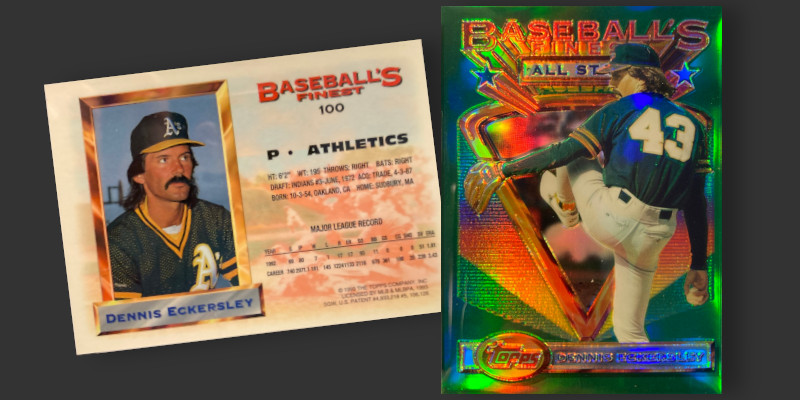
The Definitive Eckersley Card
While Eckersley is best known as Oakland’s famed closer, it is his conversion from being a top of the order starter that holds the most interest. His 1976 Topps rookie card depicts him at the top of his game and is extremely affordable compared to almost any major rookie card of the era. An autographed copy of this card would be ideal, as Eckersley has a great signature and is a frequent signer.
